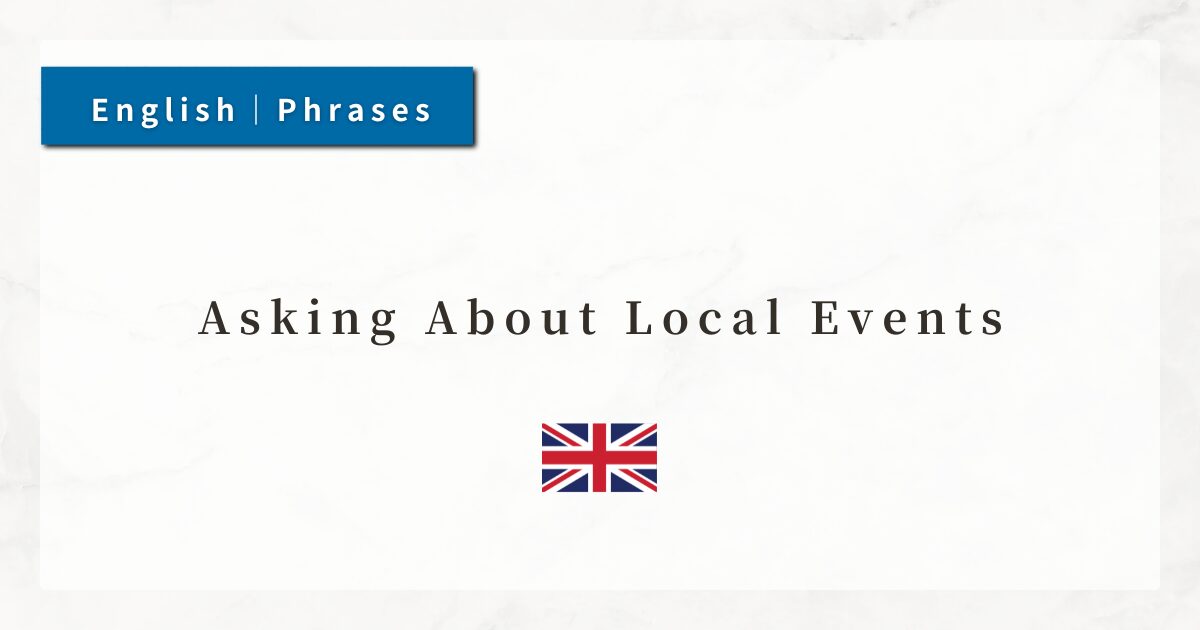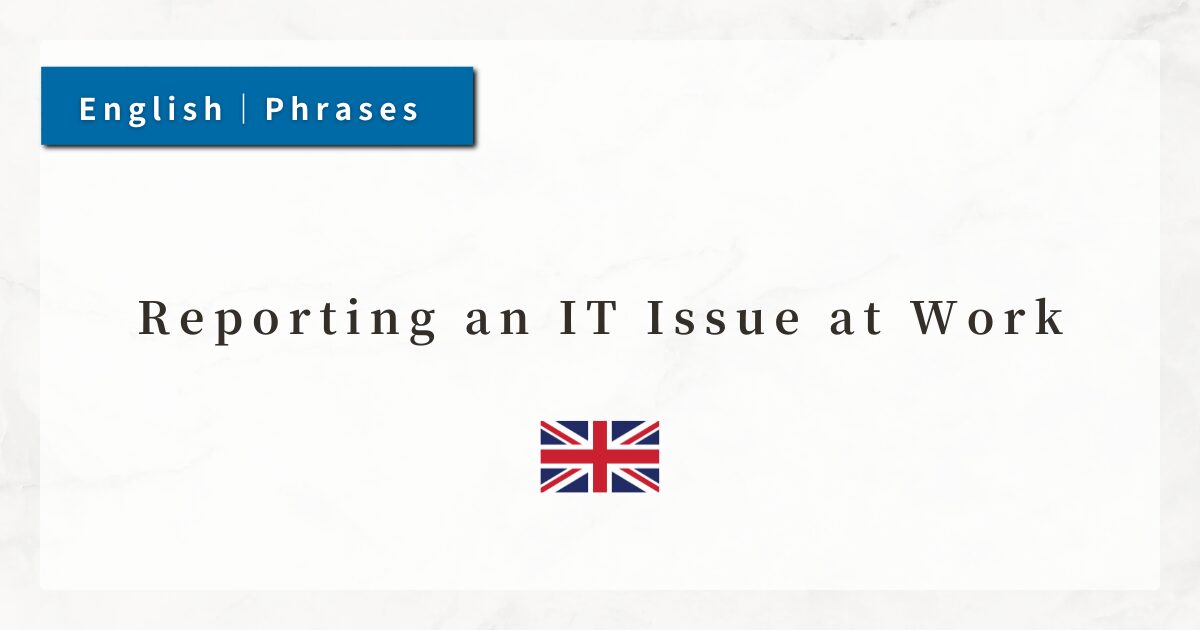#10 Asking About Local Events|English Travel Phrases

One of the joys of traveling is discovering local events and festivals that are not listed in guidebooks.
If I can naturally ask hotel staff, tourist information centers, or local people about “what events are happening now” in English, it will greatly expand my travel experience.
In this lesson, I will introduce practical English expressions for asking about local events, along with clear explanations of their grammar and usage.
Dialogue

Hi, are there any local events going on this week?

Yes, actually there’s a street music festival starting tomorrow.

That sounds interesting! Where is it held?

It takes place in the old town square, from 5 p.m. each evening.

Great! Do I need to buy a ticket?

No, it’s free to attend. Just show up and enjoy the music.
1. Asking About Events
The phrase “Are there any 〜” is a polite and gentle way of asking, meaning “Is there anything…?”.
- Are there any local events going on ?
The use of any makes the question less pressing, conveying the nuance that “it’s fine if there aren’t any.”
The phrase “going on” means “happening right now” or “currently taking place.”
2. Asking or Explaining the Venue
Both “take place” and “be held”, their usage differs slightly.
Neutral and widely used in everyday conversation, news, and official announcements. Best for events that are already scheduled or planned.
More formal and often used in writing, ceremonies, or business contexts.
3. Expressing Impressions
The phrase “That sounds + adjective” is a useful way to react to information you hear.
- That sounds interesting!
- That sounds fun!
- That sounds amazing!
- That sounds like a great experience.
Here, interesting often means “fun” or “exciting” in spoken English, beyond just “intellectually interesting.”
4. Confirming Politely: “Do I need to ~?”
This structure is very handy when asking whether something is necessary during travel.
- Do I need to buy a ticket?
- Do I need to reserve in advance?
- Do I need to bring my passport?
It combines politeness and clarity, making it safe to use with staff at tourist information centers, hotels, or shops.
5. Talking About Costs or Restrictions
The phrase “It’s free to ~” means not only “no cost” but also carries the nuance of “freely allowed.”
- It’s free to attend.
- It’s free to join.
- You’re free to take photos.
The word “free” is therefore a very versatile term, meaning both “no charge” and “without restrictions.”
Summary
- Are there any local events going on this week?
→ A basic and natural way to ask about events. - That sounds interesting!
→ A positive reaction phrase to show interest. - Where is it held? / It takes place in ~
→ Useful for asking and telling about the venue. - Do I need to buy a ticket?
→ A polite way to confirm if something is required. - It’s free to attend.
→ The pattern free to + verb expresses both freedom and “no cost.”






